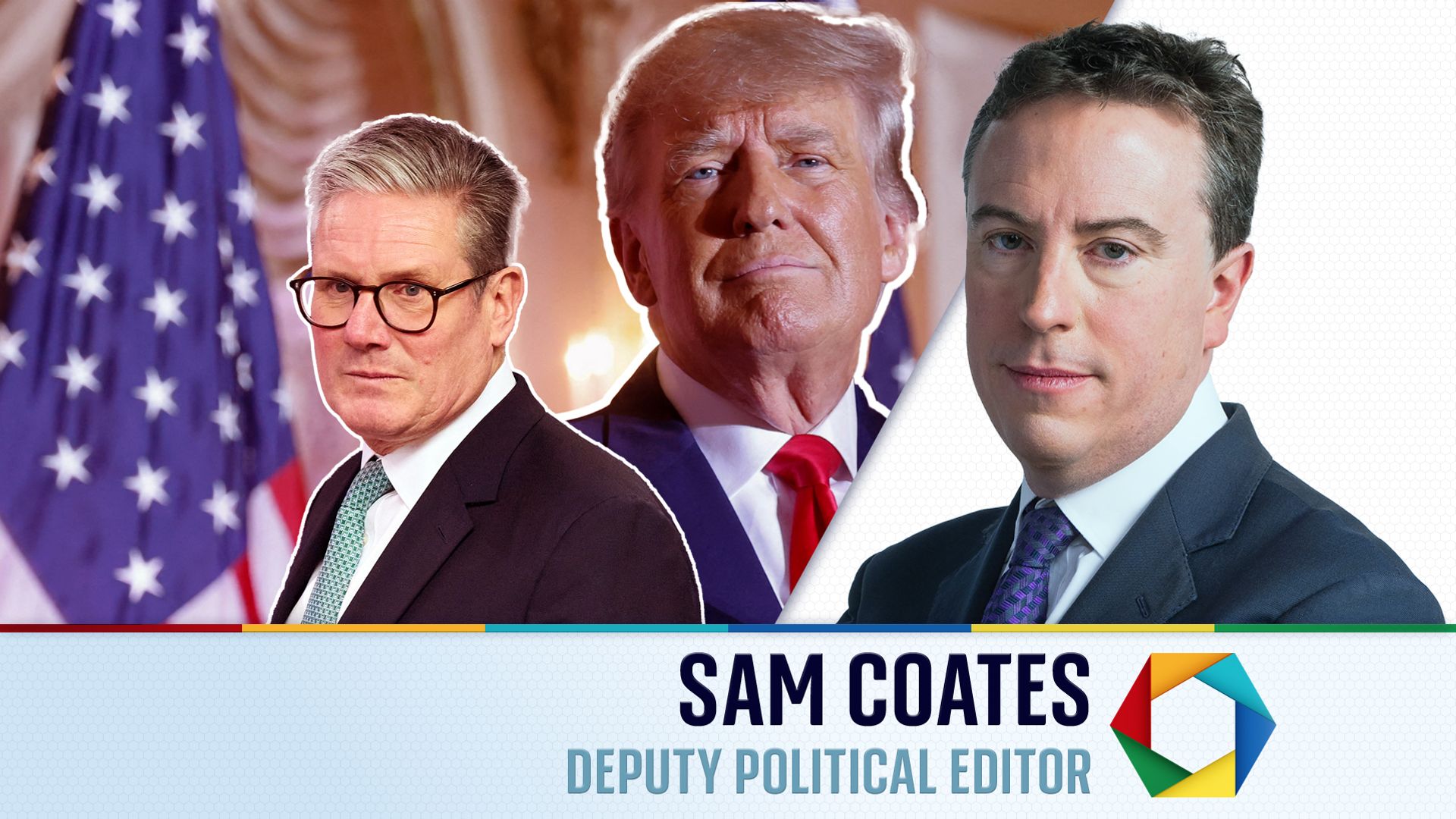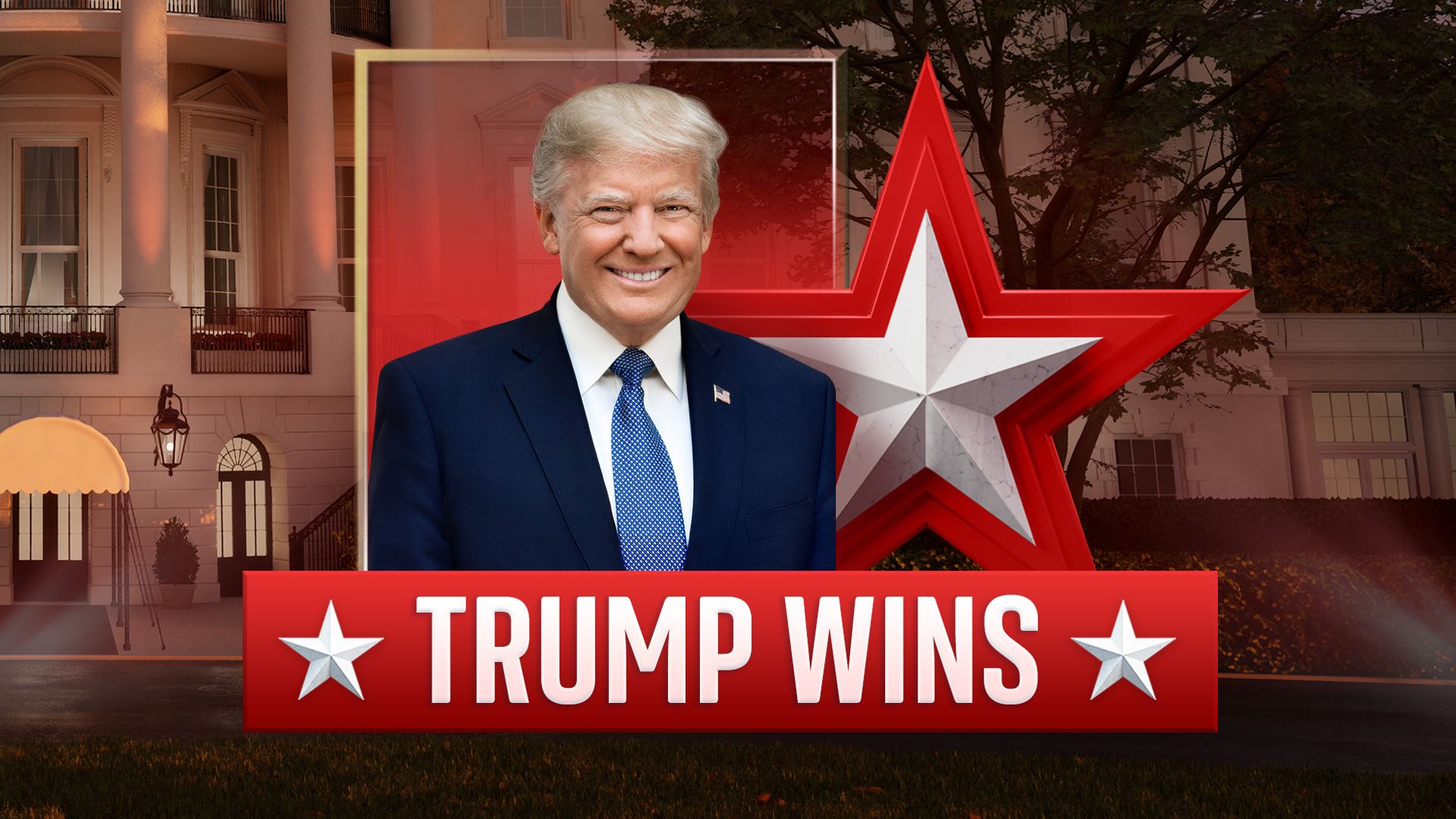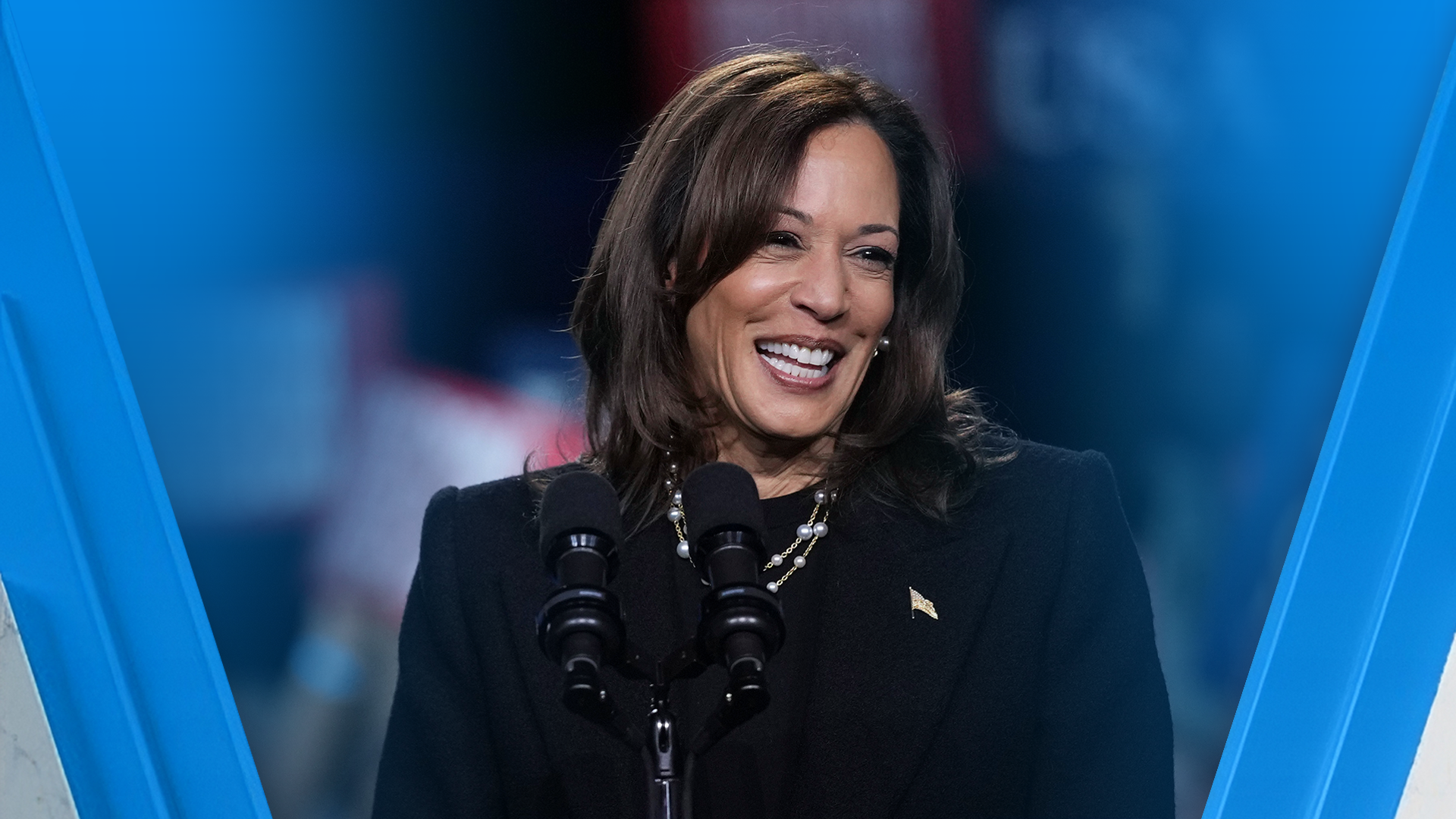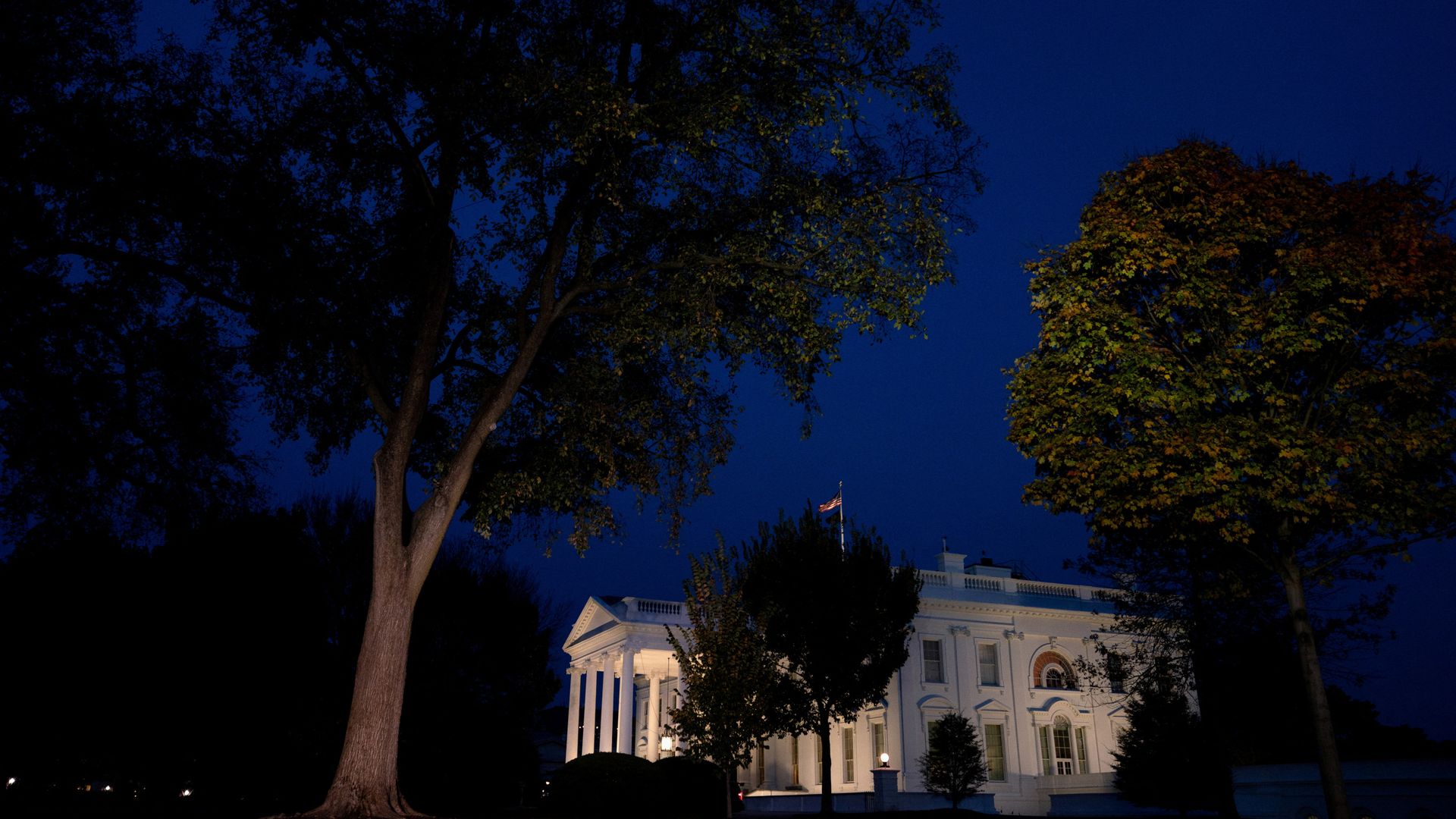In June 2019, Sir Keir Starmer wrote about the two people he liked least in global politics: “An endorsement from Donald Trump tells you everything you need to know about what is wrong with Boris Johnson’s politics and why he isn’t fit to be prime minister.”
The same month, again, he railed: “Humanity and dignity. Two words not understood by President Trump.”
Back then, Theresa May was prime minister, Jeremy Corbyn was leading Labour and Sir Keir was already in discussions about seizing the crown if his party lost the election.
So at the time, Sir Keir’s tweets were intended as a harmless gesture to boost his appeal to Labour supporters who could unite around a common political foe. Needless to say, they were not meant to have a lasting diplomatic legacy
US election 2024 – follow live updates
Sir Keir’s now foreign secretary was even less diplomatic. Back in 2017, David Lammy – who was sitting out the Corbyn era and unconstrained by frontbench strictures – said Trump was promoting “a fascist, racist, extremist hate group”. Addressing the then president directly, he intoned: “You are not welcome in my country and my city.”
Unlike Sir Keir, Lammy did not have a higher purpose in posting his messages. In his book, Tribes, Lammy admitted when writing this message he chose the most provocative and blunt language possible knowing it would light up Twitter. It worked, and in the book, he notes the message received 58,000 reposts.
These two men must now hope these outbursts are long forgotten and they can work with one of the most capricious, unpredictable and vain politicians on the planet, who in the last few hours made a sensational return to the White House after four years in the wilderness.
Repairing this breach has been one of Lammy’s main tasks ever since he was appointed shadow foreign secretary in November 2021.
Please use Chrome browser for a more accessible video player
Having spent his childhood summers in New York before attending Harvard Law School, Lammy is no stranger to US politics. He went at least five times in Opposition, prioritising relations with Republicans. All the while he watched the chances increase of a Trump return to the White House.
His Rolodex of Republicans now includes Robert O’Brien, the fourth and final National Security Adviser in the first Trump presidency, Mike Pompeo, the ex-secretary of state, and Elbridge Colby, who could head to the defence department or security job on Trump’s return to power.
Such was Lammy’s success charming Colby, a China hawk who one would think would have a natural affinity with the Tories, that he recently gave a remarkable interview to the Telegraph which suggests some genuine progress has been made.
“Right now you probably have not seen conservatives in America and conservatives in England so far from each other,” Colby told the paper. He went on to heap praise on Labour’s approach to foreign affairs more widely.
“I’ve been struck that Lammy has made a real effort to reach out to conservatives and new-Right people in the United States,” Colby says. “I like what I’m hearing from Lammy and [Defence Secretary John] Healey,” he says.
“Certainly in their defence approach I hear a lot more realistic reckoning of ends, ways and means which is a very positive development from the Cameron approach which was wildly incoherent and ended up putting the burden on the Americans – the Libya [bombing campaign in 2011] being the ultimate example.”
As for Lammy’s past comments, they are excused. “A lot of people have said things in the past that they’ve moved on from,” Colby added.
Please use Chrome browser for a more accessible video player
Lammy also believes he has another, even bigger diplomatic prize that could be used to smooth relations – Trump’s pick for vice president, JD Vance.
Lammy first met Vance long before Trump’s selection as his number two – ironically they were both Trump critics once – bonding over their respective books, growing up in tough places and being lawyers before they were politicians.
The challenge will be leveraging that link into something more meaningful when the most unpredictable of characters walks back into the White House in January.
Please use Chrome browser for a more accessible video player
But the last two months have shown just how unpredictable relations are likely to be.
The high was a two-hour dinner in Trump Tower in September with Trump, Starmer and Lammy (“We saw that – especially the location – as a gesture of friendship,” said a UK official).
The low point was the publicity around Labour’s campaigning effort for the Democrats, involving dozens of party figures trying to prevent Trump’s victory, an effort weaponised by the candidate himself with the Republican Party bringing legal proceedings. It is not entirely clear which memory Trump will carry into the White House.
However, global issues – and the impact of US domestic policy – could yet sour global relations.
Lots of thought has gone into how the UK and EU countries will deal with the possible threats to NATO and Trump’s stance on Ukraine.
On Thursday, European leaders will be gathering for a meeting of the European Political Community to take stock of the changed global picture.
Please use Chrome browser for a more accessible video player
In Whitehall, they are clinging to the idea that Trump’s love of dealmaking might mean he brings pressure to bear on Russian President Vladimir Putin over Ukraine rather than simply walking away.
But Europe, including the UK, has begun the conversation about what happens next with or without the US.
Where the UK feels less prepared is in the impending trade war, with the Trump threat of a 10% tariff on goods being imported to the US. Speak to parts of government and they seem almost nonchalant – emphasising that the vast majority of our trading relations with the US is in services which could escape such a tax.
But this is seen as complacency by manufacturers – who point out we export £70bn worth of cars, pharmaceuticals and Scotch whisky to the US – which is worth double our next biggest export market of Germany.
They have been pleading with ministers in the business department to take the threat seriously. Jonathan Reynolds, the business secretary, recently authorised modelling to look at the impact of any such tariffs.
Some Labour MPs think a Trump win will mean a material hit to GDP growth – a rebuke to those in government who have been taking the prospect of US protectionism too lightly.
Economic and global turbulence is never without cost, but the Starmer government is hoping it has done what is practically possible to provide a modicum of insulation.
They will soon find out if it works.









